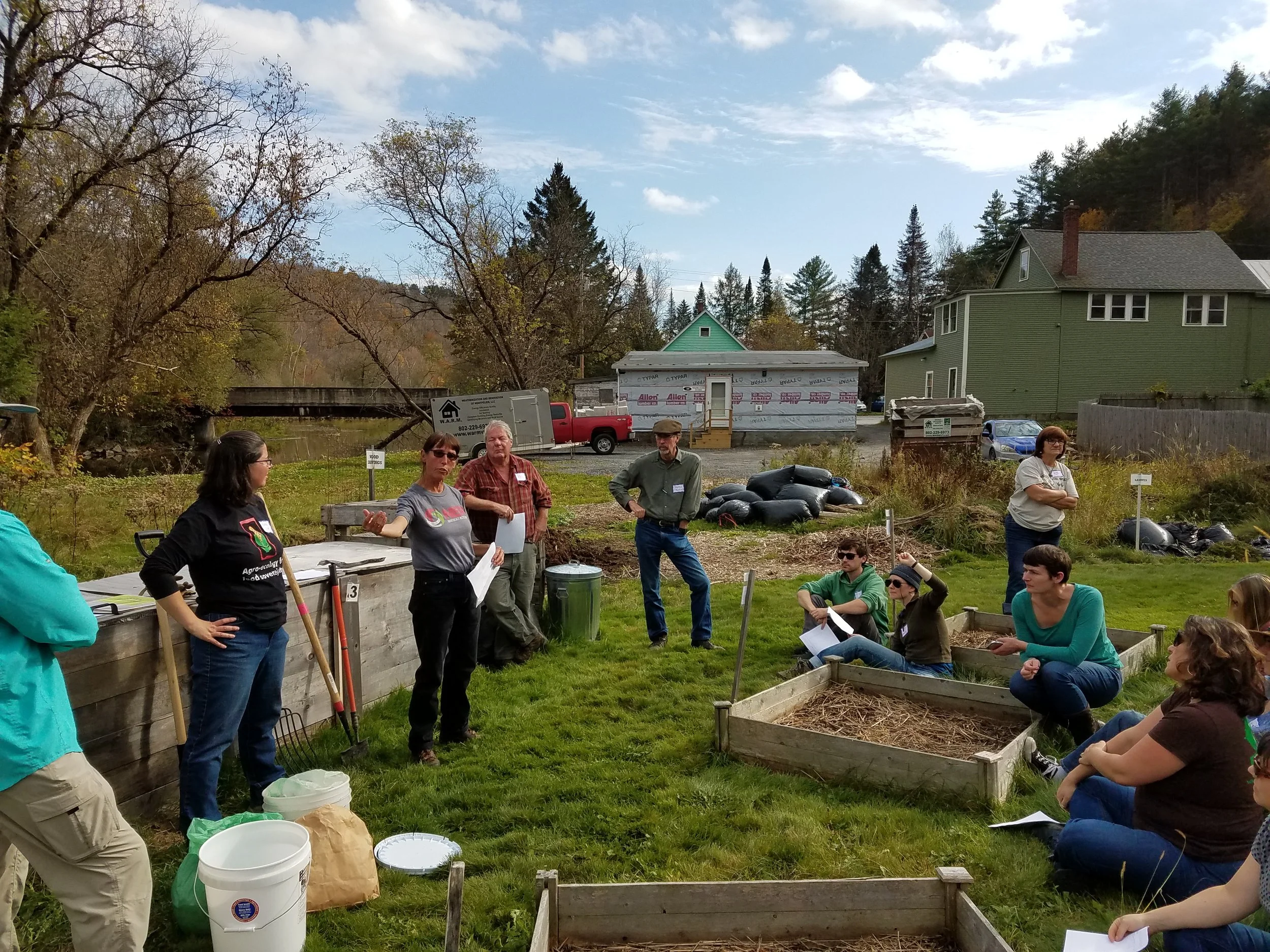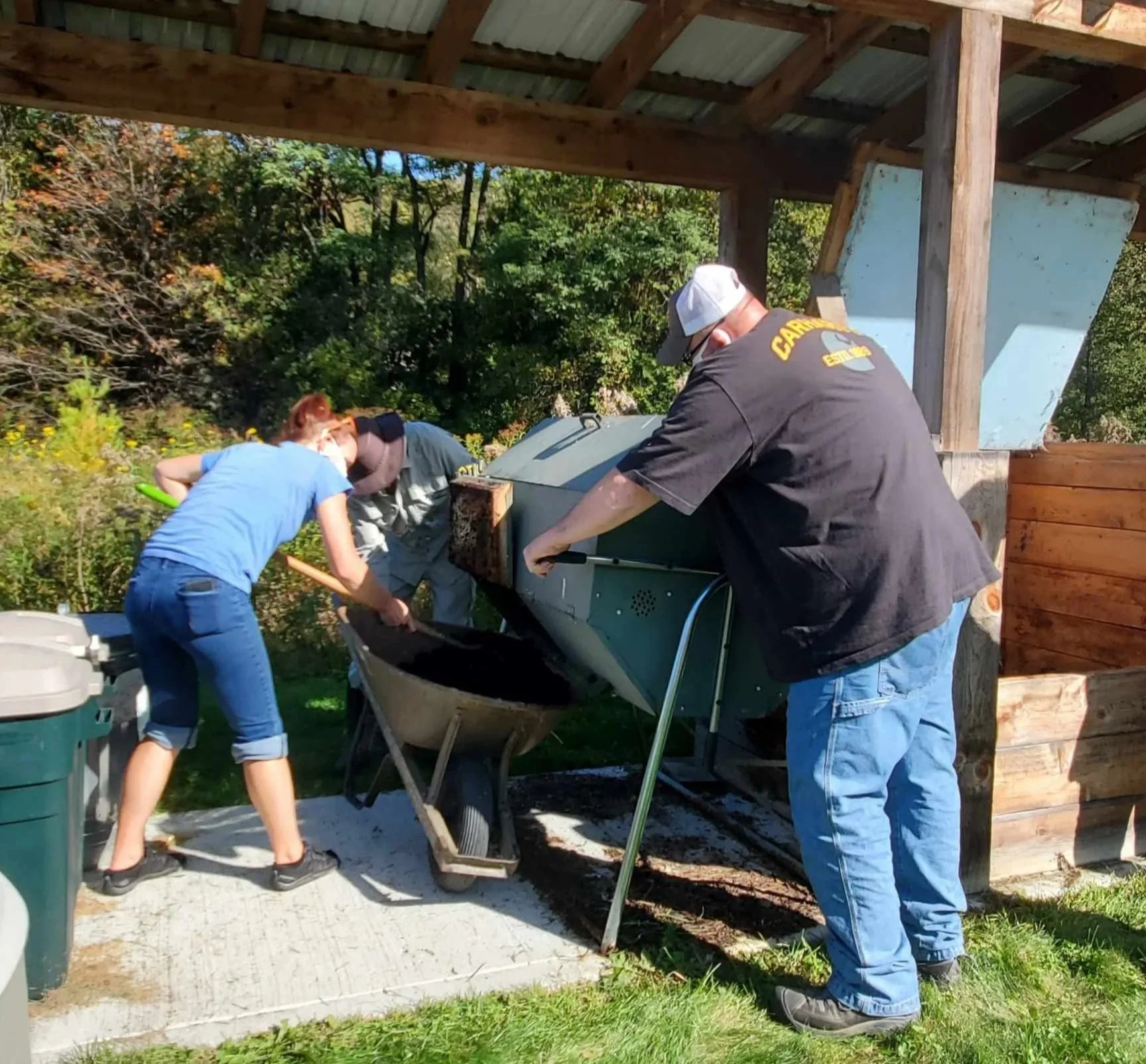
Community Composting
Keeping composting local empowers people to participate, learn, & close the loop in their own neighborhoods.
Organics are among the few materials that can be fully managed within a community. When we shift our perspective from viewing them as waste to recognizing them as resources, they become valuable assets that strengthen local food systems and serve community needs.
Community composting operations vary widely in size—from small 10-square-foot sites to larger 20,000-square-foot facilities. They are often volunteer-run or managed by farms, nonprofits, or small businesses. Whether in urban or rural settings, these sites share a common focus: managing organics locally, producing compost for local use, and fostering community partnerships and connections.
By providing a practical and accessible model, community composting plays a vital role in the evolution of food scrap diversion, helping to normalize composting at every scale—from backyard bins to commercial facilities.

